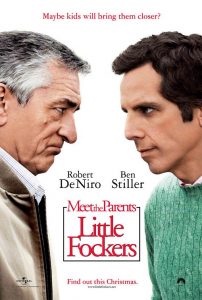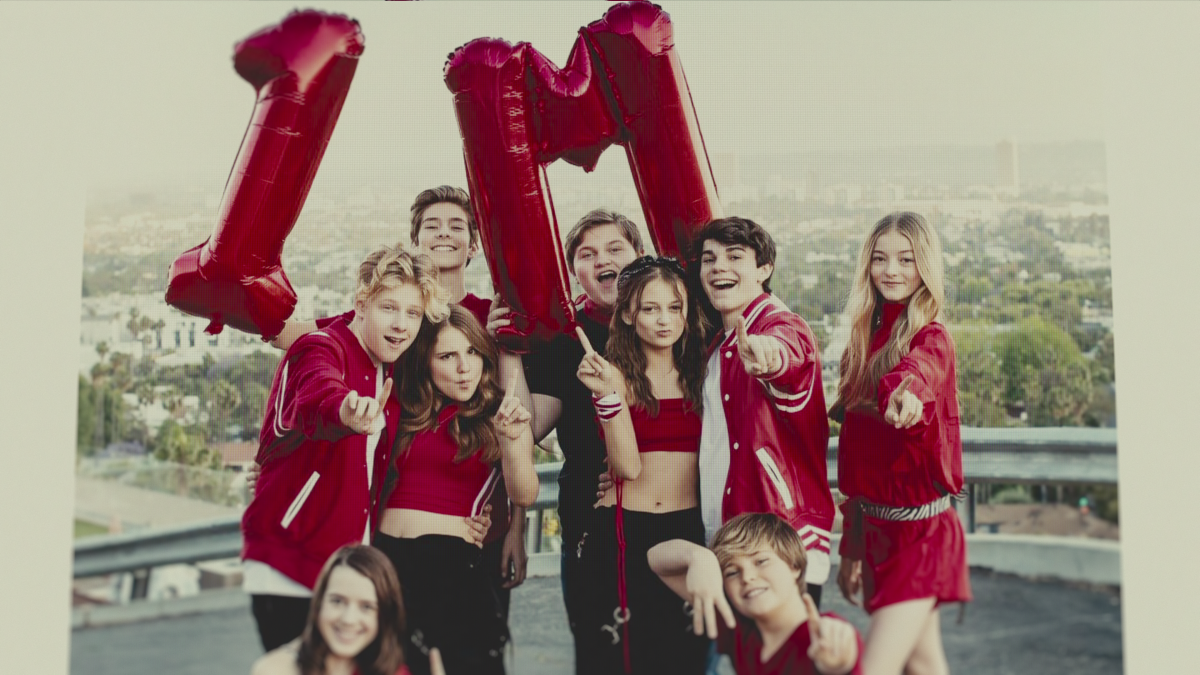A decade ago, one of the most unlikely on screen comedic tandems made their mark on the movie industry in “Meet the Parents”. Ben Stiller(There’s Something About Mary), a perennial lovable goofball, and Robert DiNero(The Godfather: Part II)teamed up to make true comedic genius as two polar opposites struggling to become family as Gaylord “Greg” Focker(Stiller) is set to marry Jack Byrnes'(Robert DiNero)beloved daughter Pam(Teri Polo). Under the intense pressure of Jack’s supervision, Greg seems to make the worst first impression possible. These hilarious hi-jinks made for brilliant material and exponential success. At this point it was decided that somewhere down the road, a sequel would be made in which Jack and his wife Dina(Blythe Danner)would be introduced to Greg’s happy-go-lucky and more importantly, Jewish parents played by Dustin Hoffman and Barbra Streisand. This divide of religion and lifestyles made sequel “Meet the Fockers” a successful film in its own right. When plans for a third installment in this highly adored series were announced, anticipation of “Little Fockers” spread rapidly throughout the country.
Released exactly six years after the film series’s second installment, “Little Fockers” centers around the birthday party of Greg and Pam’s five year old twins. Unfortunately for director Paul Weitz, a newcomer to the “Meet the Parents” dynasty, the most recent installment in this franchise lacked the luster to compete with its precursors.
To call “Little Fockers” repetitive would be the understatement of the century. With six years between movies to write this screenplay, most expected a timeless side splitting classic. Needless to say, viewers are left displeased by the predictable nature of “Little Fockers”. To the chagrin of viewers, DiNero and Stiller are using the same material which gained critical acclaim 10 years ago. Jack Byrnes is still an intense former CIA agent who is reluctant to trust people, while Greg still manages to make every mistake possible. All character development and progress made between Greg and Jack has seemingly been erased as if they had just met each other.
While watching, one cannot help but wonder what happened to the brilliant comedy which was captured in “Meet the Parents”. Not even the back and forth banter of DeNiro and Stiller can salvage anything valuable from this dismal screenplay. The witty, intelligent comedy which made “Meet the Parents” successful is replaced by crude humor which would be commonplace in the typical modern slapstick comedy. This is disappointing because “Little Fockers” was not meant to be a “typical modern slapstick comedy”, and its all star ensemble was not meant to appear in such an abomination.
“Little Fockers” gives off the aura of a 1980’s horror film sequel, of course not literally but figuratively, as fairly humorous scenes are randomly placed together in sheer hope of stumbling upon something meaningful. These bits and pieces of great comedy made for an intriguing preview, drawing viewers to theaters across the nation, only to be left disappointed by the makeshift movie they have just witnessed.
Inexplicably, Kevin Rawley(Owen Wilson), a former flame of Pam’s, is found to be highly involved in his beloved ex girlfriend’s life, despite traveling the world with monks. Kevin’s quest to rekindle his relationship with “the one that got away” continues from this film saga’s first installment, and continues to prove fruitless. Frankly, Kevin’s over the top antics simply are not as funny the second time around, much like the plot of “Little Fockers”. Perhaps even more strangely are the recurring references to “The Godfather” trilogy. These odd references include character names, the movie’s score, and Jack’s nickname for Greg, “The GodFocker”. This references only add to the overall confusion of most viewers.
Perhaps the best acting performance in “Little Fockers” came from Colin Baioochi, who played the role of Greg and Pam’s five year old son Henry. Baioochi steals the show from both DiNero and Stiller at times with his smug remarks and clumsy nature, which Jack refers to as a “double dose of Focker”. Not many could have predicted that a five year old, but that is exactly what the screenplay of “Little Fockers” allowed to happen.
In what will surely be remembered as one of the most disappointing movies of 2010, “Little Fockers” failed in comparison to its antecedents. The failure of DeNiro and Stiller’s on screen chemistry serves as an example that all great movies stem from an outstanding screenplay, which in this case, simply did not exist.









